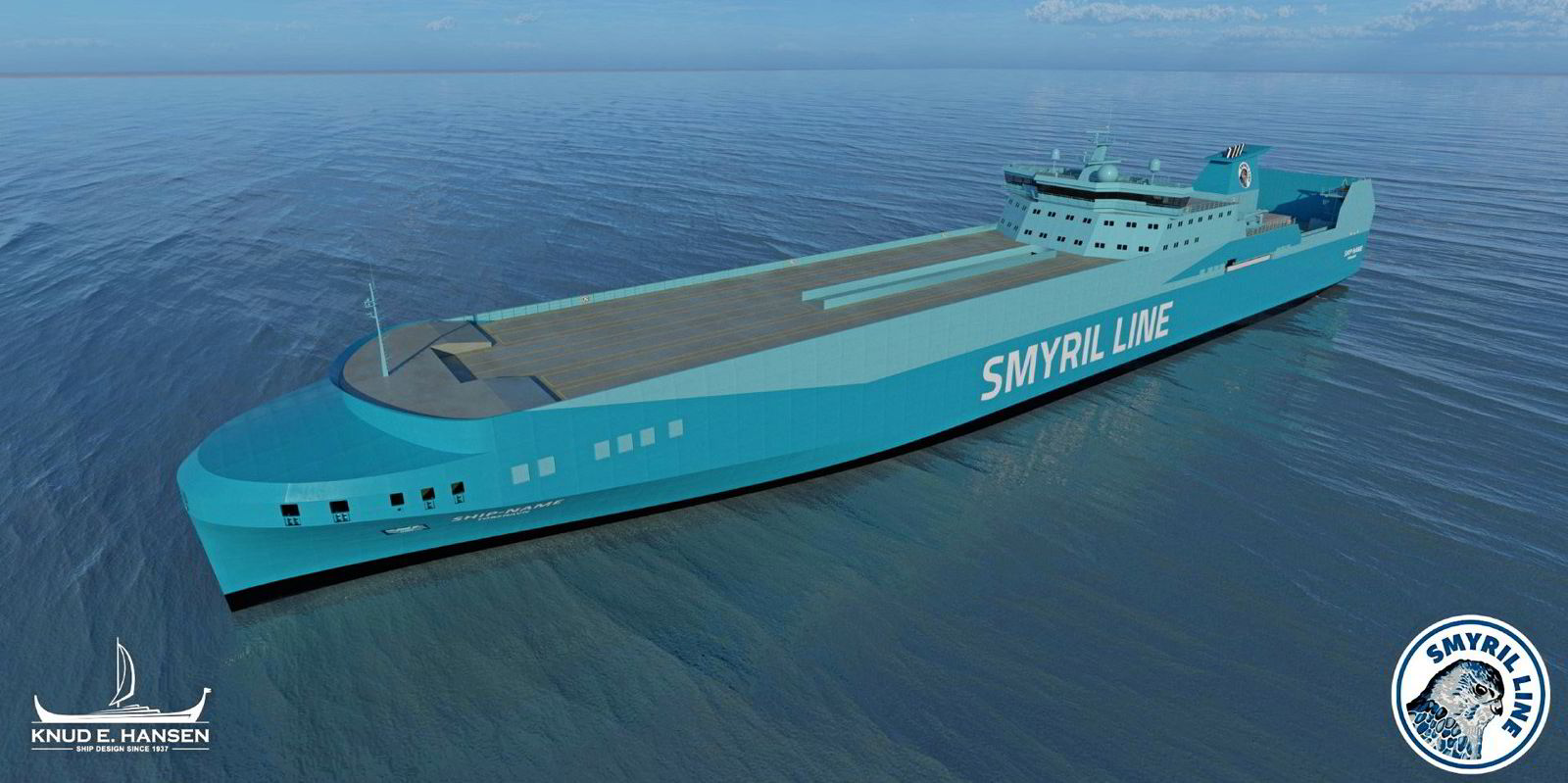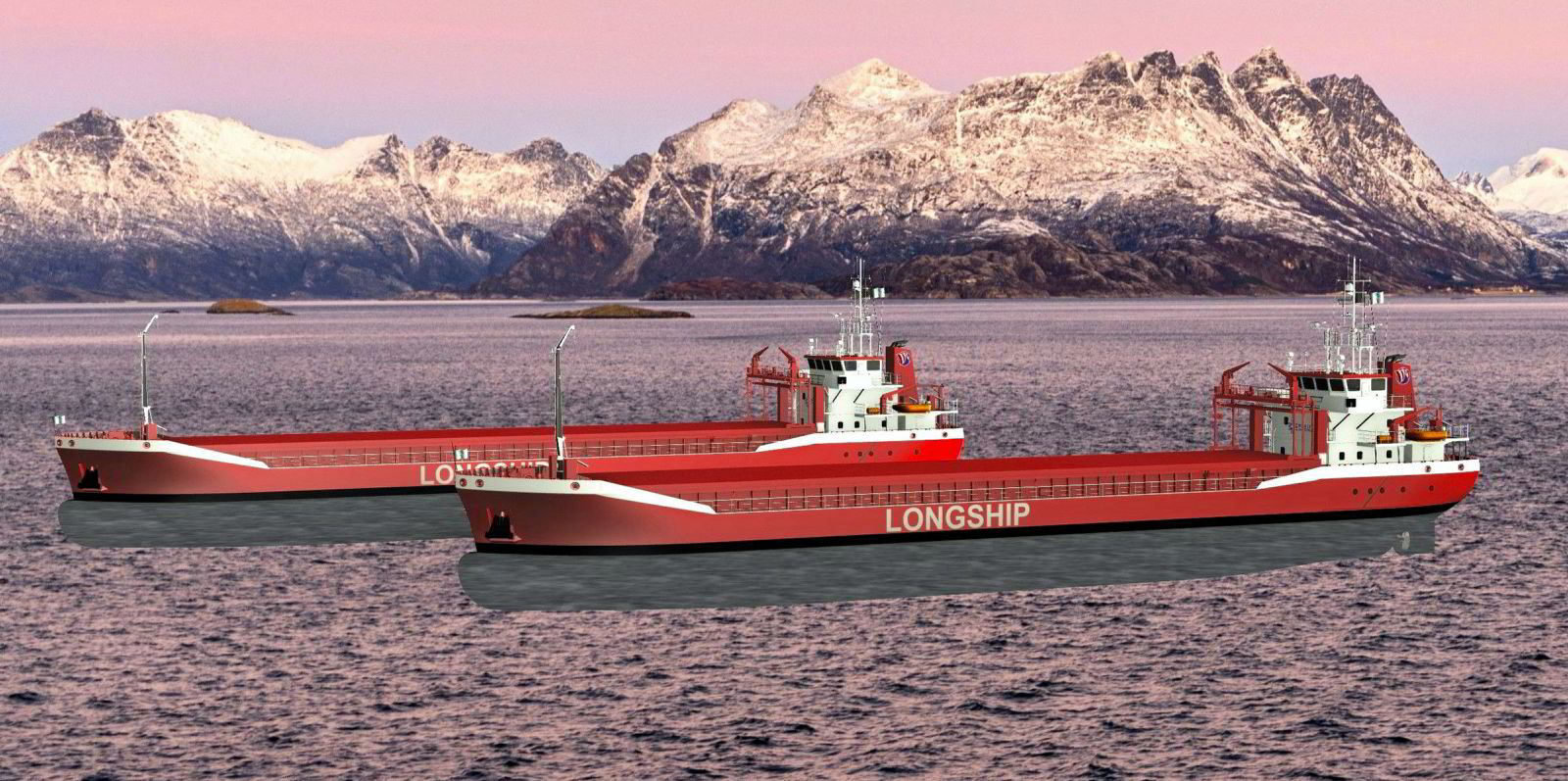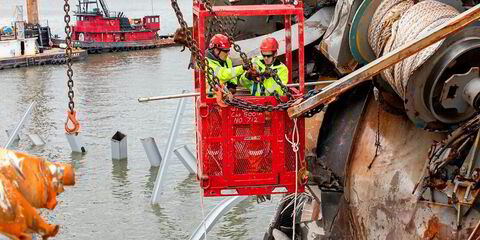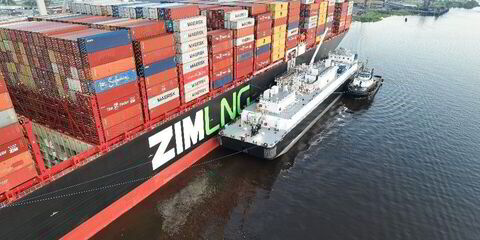Faroe Islands-based Smyril Line is renewing its elderly cargo ship fleet with a newbuilding order in China.
The shipowner has picked CIMC Raffles Offshore Engineering to build two methanol-ready ro-ro freight vessels.
The 190-metre ships will start sailing in 2026.
They will have a capacity of 3,300 lane metres for trailers.
No price has been revealed for the newbuildings.
They have been designed in close cooperation with naval architect Knud E Hansen and tailored to the route between Europe, the Faroe Islands and Iceland.
This is one of the world’s longest ro-ro and ropax routes but probably also the one with the most challenging sailing conditions, the company said.
“We know from experience that sailing on our route places great demands on both ship and crew, and we have therefore designed the ships with this in mind,” Smyril Line chief executive Jens Meinhard Rasmussen added.
Smyril is listed with six ships built between 1980 and 2003: ro-ros, a ropax, a multipurpose and a vehicle carrier.
Compared to the existing fleet, the new vessels will emit significantly fewer pollutants per transported tonne.
Battery system included
They will be equipped with a battery system and there is the possibility for shore power, which means port operations can be conducted without emissions, the owner said.
Smyril Line considers e-methanol “the best future choice for green energy”.
“Now is the time to set ourselves new and bigger goals towards reducing emissions in the North Atlantic,” Rasmussen said.
“The company’s main goal is to ensure safe and reliable transportation of passengers and cargo, and to connect the periphery of the North Atlantic with the rest of the world,” he added.
“With the new ships, we emphasise futureproofing and leading the company towards a greener energy solution and lead the way for Smyril Line towards the goals for decarbonisation in our fleet renewal, supporting the green transition of the shipping industry,” Rasmussen explained.
He put the energy saving from the new ro-ros at 60% as a minimum.
“This is an important step for us to achieve our goals towards net-zero emissions by 2050, while we can offer our customers an even better service,” Rasmussen said.(Copyright)




